Ministry of Justice develops standards for free legal aid for minors
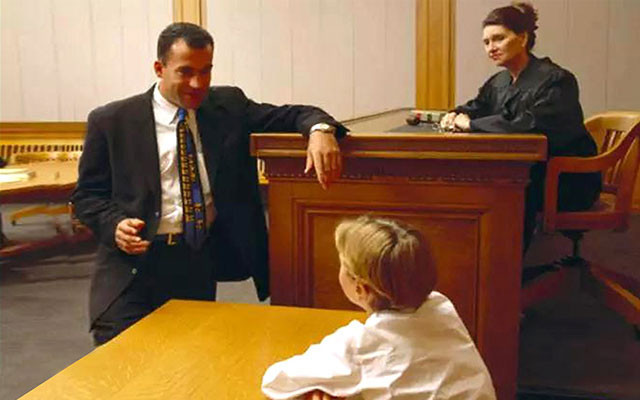
Amendments have been prepared to the quality standards for the provision of free secondary legal aid. In addition to purely technical amendments («legal» assistance becomes «legal aid» and «mass media» becomes «media»), requirements are envisaged for assistance and representation of minors.
The Ministry of Justice prepared and submitted two drafts to the Ukrainian National Bar Association:
- «On Amendments to the Order of the Ministry of Justice of Ukraine No. 386/5 dated February 25, 2014» (Quality Standards for the Provision of Free Secondary Legal Aid in Criminal Proceedings);
- «On Amendments to the Order of the Ministry of Justice of Ukraine No. 4125/5 dated December 21, 2017» (Quality Standards for the Provision of Free Secondary Legal Aid in Civil and Administrative Proceedings and Representation in Criminal Proceedings).
With regard to the provision of free secondary legal aid in criminal proceedings (Order No. 386/5), it is proposed to supplement the relevant table of the Standards with a new section on minors. The proposed Standards provide for the following obligations for lawyers:
- giving priority to criminal proceedings in which the center defends minors on behalf of the center, in particular, by taking appropriate actions to transfer participation in other criminal proceedings;
- filing a petition to have a legal representative, a psychologist, and, if necessary, a doctor, participate in the interrogation of minors under the age of sixteen or recognized as mentally retarded;
- explaining to the child in a language accessible to him/her, taking into account his/her age and maturity, and to his/her legal representative the powers of the defense counsel in criminal proceedings, the necessary information regarding the possible consequences of the child's views and/or opinions, as well as the client's procedural right to reconciliation in criminal proceedings and its consequences, and informing about the possibility of participating in the Restorative Justice Program involving minors who are suspects, accused of committing a criminal offense (hereinafter referred to as the Program); taking into account the results;
- submitting a request to the investigator, prosecutor, investigating judge, or court to replace the client's legal representative if the actions or interests of the legal representative contradict the interests of the person he or she is defending;
- Preparing a complaint to the prosecutor and notifying the Ukrainian Parliament Commissioner for Human Rights in case of detention/detention of a minor on suspicion of committing a misdemeanor, minor or medium gravity crime;
- filing, with the consent of the minor, a request to conduct investigative actions and/or interrogation not only at the place of pre-trial investigation, but in child-friendly conditions;
- explaining to the client before the trial the possibility of hearing the case in a closed court session and filing a corresponding motion at the client's request.
It is proposed to set forth similar obligations of a lawyer in the table of Standards approved by Order No. 4125/5.
New standards for representing minors in criminal proceedings may include:
- explaining before the trial that the case may be heard in a closed court session and, at the client's request, filing a corresponding motion;
- giving priority to criminal proceedings in which the center represents minors on behalf of the center, in particular, by taking appropriate actions to transfer participation in other criminal proceedings;
- filing a petition for the participation of a legal representative, psychologist, and, if necessary, a doctor at the pre-trial investigation or during the trial, including in order to minimize investigative (procedural) actions involving the child and the possibility of his or her further participation in the trial without causing retraumatization;
- explaining to the child in a language accessible to him/her, taking into account his/her age and maturity, and to his/her legal representative the powers of the representative in criminal proceedings, the necessary information regarding the possible consequences of the child's views and/or opinions, as well as the procedural right to reconciliation with the suspect, accused in criminal proceedings and its consequences, and informing about the possibility of participating in the Restorative Justice Program with the participation of minors who are suspects, accused of committing a criminal offense, as well as with the
- notifying the prosecutor and the Ukrainian Parliament Commissioner for Human Rights in case of non-compliance with the requirements of the law on conducting investigative (search) and procedural actions with a client who is a minor in a child-friendly environment and in conditions that minimize the consequences of trauma;
- filing a petition before the start of the trial to consider the criminal proceedings without the participation of the minor (unless the minor himself or herself has expressed a desire for such participation);
- ensuring submission to the court of documents regarding the minor's opinion on the sentencing of the accused or when deciding on the application of compulsory educational measures in the case of a trial without the participation of the minor victim.
The Ministry of Justice assures that the implementation of the drafts will ensure that the provisions of the orders are brought into line with the current legislation. The drafts themselves, explanatory notes and comparative tables to them can be downloaded here.
Popular news
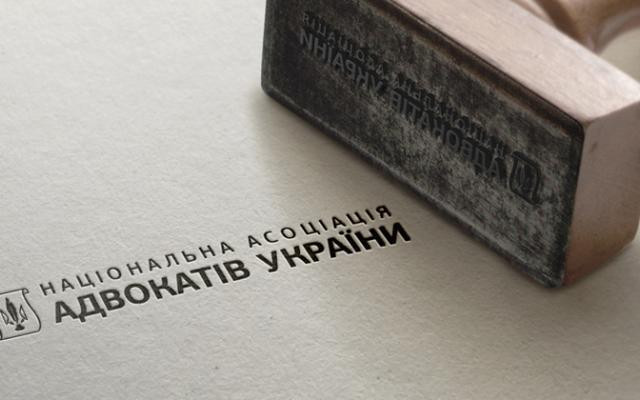
Self-government
The BCU demands a review of the composition of the government working group on reforming the advocacy profession
The President of the UNBA, BCU Lidiya Izovitova, appealed to the Cabinet of Ministers of Ukraine to review the composition of the working group on improving legislation in the field of advocacy and legal practice.

Discussion
Why lowering the age of marriage lacks legal logic
Although until 2012 there was a provision in family law that allowed children to marry from the age of 14 under certain circumstances, its return to Ukrainian law would contradict international obligations and the logic of criminal law.
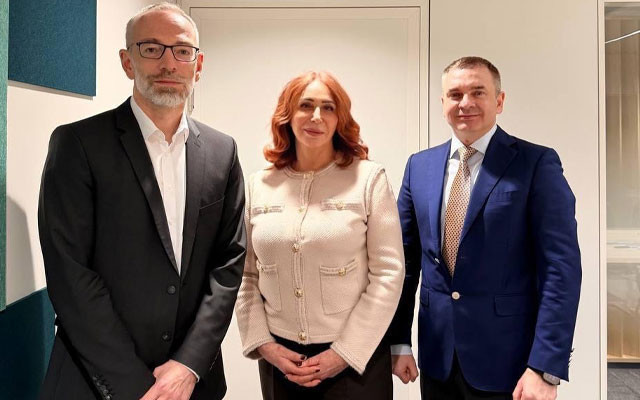
European integration
Open dialogue between the UNBA and the European Commission on the path to EU
The Ukrainian National Bar Association held a working meeting in Brussels with Mr Wolfgang Nozar, Head of Unit for Governance, Rule of Law and Financial Assistance, Directorate-General for Enlargement and Eastern Neighbourhood (DG ENEST), European Commission.

Self-government
A report on Ukrainian advocacy was presented in the European Parliament
Can a shadow report on advocacy replace the political framework of the Roadmap on the rule of law with demands for the restructuring of self-government? Where is the line between accountability and the seizure of institutions? And how can we respond to narratives with data rather than impressions?
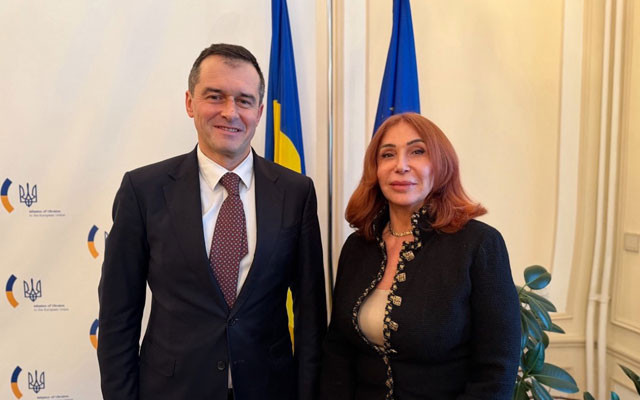
European integration
UNBA and Ukraine's representation to the EU have synchronized their priorities
On February 5, in Brussels, the President of the UNBA, BCU Lidiya Izovitova held a working meeting with the Ambassador Extraordinary and Plenipotentiary of Ukraine, Representative of Ukraine to the European Union Vsevolod Chentsov.
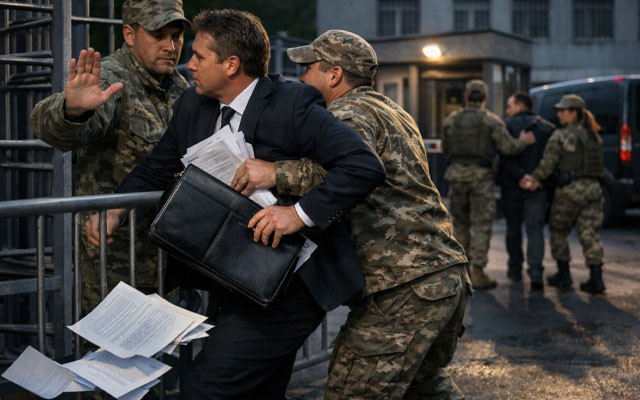
Guarantees of the practice of law
Proceedings opened following attack on advocate in Dnipro
The Committee for the protection of advocates' rights and guarantees of legal practice of the UNBA appealed to law enforcement agencies in connection with an advocate's report of an attack while performing his professional duties. The information was entered into the Unified Register of Pre-trial Investigations and a pre-trial investigation was initiated.
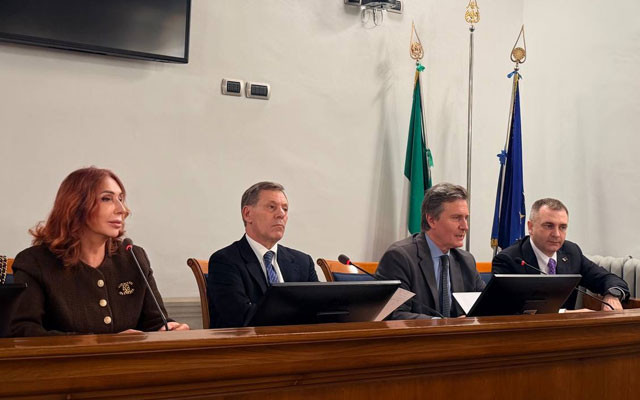
Interaction
«With us — to Europe»: Italian advocacy supports UNBA initiatives
On January 30, a meeting was held in Rome between a delegation from the Ukrainian National Bar Association and the National Bar Council of Italy (Consiglio Nazionale Forense, CNF) on the standards and practices of the legal profession and their significance for Ukraine's European integration process.
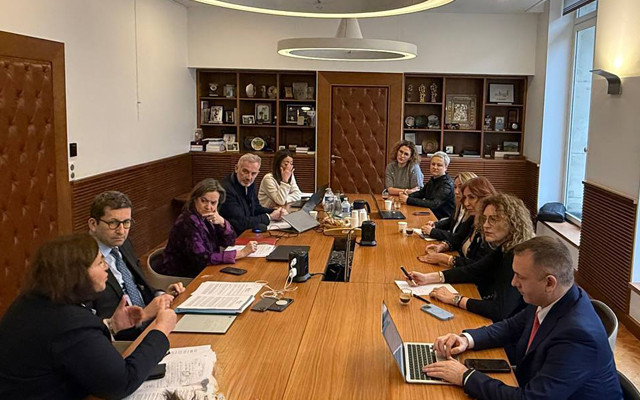
Interaction
France confirms cooperation with UNBA on reforms in the field of the rule of law
On January 29, a working meeting between representatives of the Ukrainian National Bar Association and the French National Bar Council (Conseil National des Barreaux, CNB) took place in Paris.
Publications

Volodymyr Matsko Extradition as a systemic form of rights violations

Victoria Yakusha, Law and Business The anti-corruption vertical cannot «take care» of the Bar as an institution, - acting head of the HQDCB

Censor.net Protecting advocates – protecting justice: addressing concerns about the new law

Ihor Kolesnykov A BRIEF SUMMARY REGARDING THE APPLICATION OF THE ORDER ON EXTENDED CONFISCATION IN LATVIA REGARDING FINANCIAL ASSETS OF…

Valentyn Gvozdiy WORKING IN A WAR ZONE

Lydia Izovitova Formula of perfection

Sergiy Vylkov Our judicial system is so built that courts do not trust advocates

Iryna Vasylyk Advocacy in the proclamation of Independence of Ukraine
